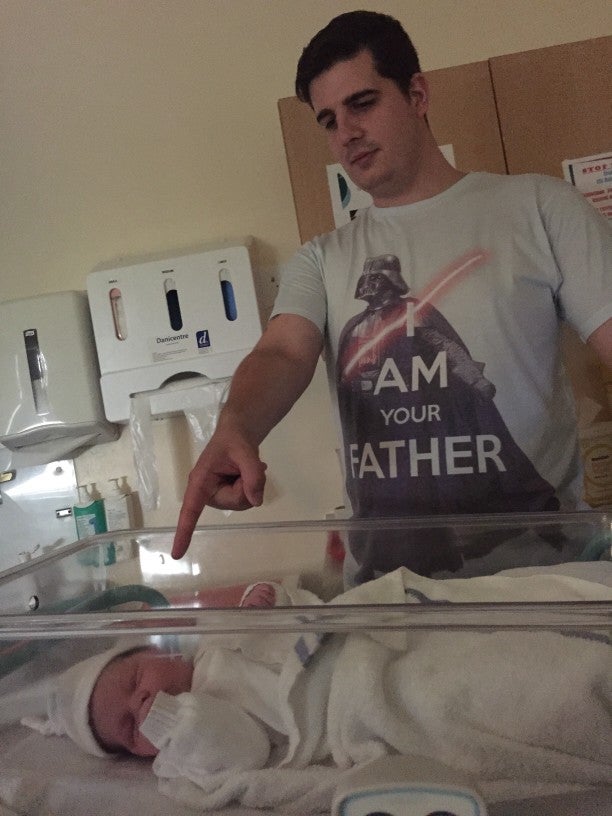How Does Cancer Affect Fertility?
Uncategorized
The good news is that cancer treatment does not always permanently affect an individual’s ability to conceive or carry a child to term. Today’s cancer patients have more treatment options than ever before.
Before You Begin Cancer Treatment: Talk to Your Doctor About Your Concerns
Many cancers affect just one part of the body. However, the treatments or combination of treatments used to treat them often end up impacting the entire body. This has led doctors who specialize in cancer treatment to adopt a team approach to patient care. Increasingly, cancer patients are treated by a variety of physicians and surgeons who focus on specific types of cancer or aspects of treatment and recovery.
If preserving your fertility is one of your concerns, your primary doctor can connect you with a specialist who will help you sort through your options and make smart decisions about your treatment path.
Doctors who treat cancer are called oncologists, and this medical specialty can be further broken down into sub-specialties that treat particular types of cancer. For example, gynecologic oncologists generally treat cancers that affect the female reproductive organs, while radiation oncologists specialize in tailoring radiation cancer treatment to a specific patient’s needs. Many of these specialists are experts at assessing how a particular cancer treatment affects future pregnancies.
Whether you are planning your first baby or your fifth, don’t wait to speak to your doctor about your fertility concerns. Make sure your doctor understands that you would like to grow your family once your treatment is finished, as this may affect what types of treatments your doctor suggests.
Chances are, your doctor may even ask you about any fertility concerns without you even bringing it up. According to the American Society of Clinical Oncology (ASCO), health care providers should be prepared to discuss fertility with cancer patients, and to offer options that address both the disease and the patient’s ability to conceive down the road. The ASCO has even published fertility preservation guidelines for physicians who specialize in cancer treatment.
For many people, having a plan or a goal in place gives them an incentive to achieve that plan or fulfill their goal. If you and your doctor approach your future fertility as a goal, you can begin working toward making it a reality — and adding “mom” or “dad” to your list of accomplishments is certainly a goal worth pursuing.
Not All Cancer Treatments Are Created Equal (When It Comes to Fertility)
How much your cancer treatment affects your fertility depends on a variety of factors, including your age, what type of cancer you have and which stage you are in, your sex, and how healthy you are. Furthermore, all of these factors will play a role in what type of treatment you and your doctor decide to pursue.
 Chemotherapy. When most people think of cancer, they immediately think of chemotherapy, which involves using chemicals (hence the name) to kill the cancer cells in the body. These chemicals take the form of medications that are usually administered through IV. However, some chemo drugs can be taken orally.
Chemotherapy. When most people think of cancer, they immediately think of chemotherapy, which involves using chemicals (hence the name) to kill the cancer cells in the body. These chemicals take the form of medications that are usually administered through IV. However, some chemo drugs can be taken orally.
One of the downsides of chemo drugs is that many of them can alter hormone levels or cause damage to a woman’s eggs, which can impact fertility. Many chemo drugs can also damage a man’s sperm.
Radiation. According to the National Cancer Institute, about half of all cancer patients receive some form of radiation therapy. When a cancer patient undergoes radiation therapy, high-energy radiation is directed at tumors or areas of the body where cancer cells are present.
This can be done from outside the body by using a machine, or internally by actually placing radioactive substances inside the body near a tumor. For example, radiation seeds — which look like small pellets — are sometimes used to treat prostate cancer in men.
Radiation can damage ovaries, eggs and sperm and may also cause early menopause in women.
Transplants. When doctors perform a bone marrow or stem cell transplant, they must usually combine the transplant with chemo or radiation therapy — and sometimes both. Because this type of cancer treatment so often involves radiation or chemo, it can have a significant impact on fertility and make conceiving and carrying to term more difficult.
Surgery. With some types of cancer, patients can avoid chemo or radiation by undergoing a surgery to remove a tumor or a part of the body where cancer cells are present. Often surgeries occur before or after rounds of chemo or radiation treatments. If the surgery involves the removal of reproductive organs, this can make it difficult or impossible to conceive or carry a pregnancy.
How Does Ovarian Cancer Affect Fertility?
It may sound hard to believe, but a woman is born with all the eggs she will ever have. The average woman has about two million eggs at birth. By her teens, a typical woman will have just 300,000 to 400,000 eggs left — and the body does not make extras or replacements.
At sexual maturity, about 1,000 eggs die off every month. Once the supply of eggs runs out, there is no replenishing it. Eggs degrade, get damaged, and develop abnormalities that can lead to miscarriages or birth defects in a fetus. This is why it’s usually more challenging for older women to get pregnant.
Because chemo and radiation can damage a woman’s eggs, cancer — and particularly ovarian cancer — can have a big impact on a woman’s fertility. Additionally, the surgical removal of the ovaries or fallopian tubes can make pregnancy difficult or impossible.
 Damage to the eggs and follicles. In cancers involving ovarian tumors, doctors may recommend high doses of radiation directed at the ovaries and the other reproductive organs. Although fertility can return after the treatment is complete, radiation and chemo can prematurely shorten a woman’s fertile window.
Damage to the eggs and follicles. In cancers involving ovarian tumors, doctors may recommend high doses of radiation directed at the ovaries and the other reproductive organs. Although fertility can return after the treatment is complete, radiation and chemo can prematurely shorten a woman’s fertile window.
If you are a woman under age 35, it’s important to thoroughly discuss your pregnancy planning with your doctor, as you may need to become pregnant sooner rather than later to ensure you have an opportunity to conceive with your own eggs.
Ovarian surgery. In some patients who require ovarian cancer treatment, it’s necessary to remove one or both of the ovaries — a surgery called an oophorectomy. Sometimes, an oophorectomy is performed in combination with a hysterectomy, which is the removal of the uterus.
Without a uterus, a woman can’t carry a pregnancy. However, she still may be able to have a biological child using her own eggs and a gestational surrogate. Women who have had just one ovary removed usually continue ovulating and can still conceive and carry a pregnancy. In many cases, doctors also try to leave one ovary behind to maintain proper hormone levels until a woman reaches menopause.
Know the Signs of Ovarian Cancer
About 22,000 American women are diagnosed with ovarian cancer each year. Caught early, ovarian cancer can be very treatable. However, ovarian cancer symptoms are often subtle and can sometimes mimic other ailments. This is why it’s important for women of all ages to see their doctor regularly. It’s also important to know the signs of ovarian cancer, which can include:
- Bloating
- Pain in the abdomen
- Problems with urination
- Fatigue
- Feeling full when eating, even after a few bites or a small meal
- Back pain
If you experience any symptoms of ovarian cancer, don’t wait to see a doctor — especially if you have had an ovarian cyst in the past.
Assessing Your Fertility after Cancer Treatment
If you’re ready to begin trying to conceive (TTC) after cancer treatment, assessing your fertility is a good place to start. There are several tests your fertility specialist can perform to give you an idea of your chances of conceiving.
 FSH test. Your doctor may test the level of follicle-stimulating hormone (FSH) in your body by taking a blood sample on certain days of your menstrual cycle. Knowing your FSH level can help your doctor get an idea of your ovarian reserve, which is your egg supply. FSH levels decrease with age, however, so don’t panic if your levels are on the low side. FSH is just one factor among many when it comes to your fertility.
FSH test. Your doctor may test the level of follicle-stimulating hormone (FSH) in your body by taking a blood sample on certain days of your menstrual cycle. Knowing your FSH level can help your doctor get an idea of your ovarian reserve, which is your egg supply. FSH levels decrease with age, however, so don’t panic if your levels are on the low side. FSH is just one factor among many when it comes to your fertility.
Estradiol test. In a woman with normal menstrual cycles, the body produces sufficient amounts of estradiol, which is a form of estrogen. Doctors can test for estradiol levels through a simple blood draw taken on specific days of a woman’s cycle.
Pelvic or vaginal ultrasound. Your doctor may also perform a vaginal ultrasound for purposes of measuring the size of the ovaries and taking a count of the follicles on each ovary.
Before you begin TTC, be sure to ask your doctor if you have the green light to move forward with a pregnancy. In some cases, doctors recommend waiting for a period of time following cancer treatment, as chemo, radiation, and other therapies can cause damage to a woman’s eggs or a man’s sperm.
Assuming your doctor gives you the go-ahead, there should be no reason why a pregnancy would cause any health problems. In fact, research has shown that there may be a link between pregnancy and a lower risk of breast cancer recurrence. Medical researchers believe this link may occur because menstrual cycles stop during pregnancy, resulting in less exposure to estrogen and other hormones that can impact the development of cancer cells.
Do You Need Assisted Reproductive Technology?
If you experience infertility following cancer treatment, it’s important to remember you are not alone. Infertility is a problem that affects about 15 percent of the reproductive population, which is around 7.5 million people in the United States.
On average, just 30 percent of couples will get pregnant the first month of TTC. A whopping 80 percent need six months or more to achieve a viable pregnancy. Although the “trying” part can be fun, it can also be frustrating when you are hoping and wishing for a baby.
 If you have tried for six or more months with no luck, it may be time to move on to a fertility specialist. A doctor who specializes in assisted reproductive technology (ART) can help you explore your options, which will probably vary depending on your age, how long you have been cancer-free, and the type of cancer you had.
If you have tried for six or more months with no luck, it may be time to move on to a fertility specialist. A doctor who specializes in assisted reproductive technology (ART) can help you explore your options, which will probably vary depending on your age, how long you have been cancer-free, and the type of cancer you had.
Because there are many causes of infertility, your doctor may recommend a complete infertility work-up to determine if something besides your fight with cancer is affecting your ability to conceive. Once you know what’s behind your infertility, you and your doctor can treat it.
Medication. To start, your doctor may suggest giving your eggs a little help with drugs like Clomid or metformin, which have been shown to help regulate the menstrual cycle and stimulate ovulation.
IUI. Your doctor may also talk to you about intrauterine insemination (IUI), which involves delivering semen directly into the uterus through a thin catheter.
IVF. Your doctor may ask you to try IUI before moving to IVF. IUI is also usually more affordable and less time-consuming than IVF, which involves extracting a woman’s eggs and fertilizing them in a lab before placing the fertilized embryos inside the uterus. However, if your cancer has seriously compromised your egg quality or your ability to ovulate on your own, your doctor may suggest moving directly to IVF.
Pay Attention to the Whole Journey
As you continue on your TTC journey, don’t neglect the emotional struggles that often come along with the process. You may take comfort in a fertility coach who can help you nurture your spirit and look after your overall well-being. Because the medical side of fertility treatment can look and feel a lot like the treatment you endured during your cancer battle, don’t be surprised if you experience mental stress and mixed emotions while trying to conceive.
In fact, you may want to consider building an infertility support network that can give you the emotional boost, comic relief, and even occasional extra boost you need to keep a clear head and a positive attitude.
Growing Your Family as a Cancer Survivor
Beating cancer is an amazing achievement. As cancer treatment options improve and survival rates continue to go up, it’s increasingly common to hear inspiring stories of people who have become parents post-cancer.
Anchorman actress, Christina Applegate, became a mom just two years after undergoing a double mastectomy. Olympic gold medalist, Shannon Miller, gave birth to her daughter following ovarian cancer. There are also numerous support groups filled with everyday moms and dads who have triumphed over cancer and gone on to experience the joys of parenthood.
Are you a cancer survivor who went on to have a healthy pregnancy? Share your success story by tweeting us @ASTROGLIDE.
